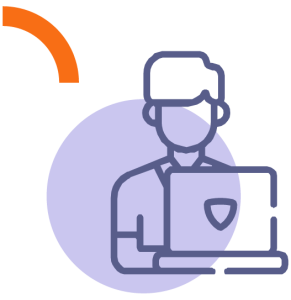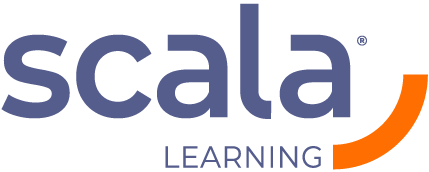Over the years, virtual education has become more popular and nowadays more and more schools are offering different programs in this modality. In 1708, Caleb Philips found a way to connect students and teachers without the necessity of sharing a geographic area.Philips did this by promoting a calligraphy course which was offered by correspondence. Nowadays we see this modality as obsolete, but we recognize it as the beginnings of virtual education, a modality that today we enjoy even more.
-
What is virtual education and what advantages does it have?
- What is virtual education?
- What is the purpose of virtual education?
- What are the advantages of virtual education?
- Is virtual education of high quality?
- Challenges of virtual education
The isolation of the 2020 transformed people’ lives, daily activities had to be relocated to homes: people worked at home, exercised at home, and were even forced to study at home; this led to a problem for those institutions that didn’t include the use of technological tools for their classes. However, considering the advantages of this situation, technology has advanced by leaps and bounds and has shown us that virtual education has arrived to innovate, provide quality and, above all, to stay.
At Scala Learning we are experts implementing specialized technological tools for the virtualization of educational programs and we want to tell you about this modality.
What is virtual education?
Although the boom in online education was several years ago, many people still wonder what it is. Well, here is the answer: Online education is the one that uses technological tools for teaching, this methodology doesn’t require the physical presence of a student and a teacher in the same geographical space, instead, the interaction between the two actors of education is always mediated by technological elements. This connection between teacher and student is possible by using the internet.

What is the purpose of virtual education?
Virtual education came about as an alternative that responds mainly to two needs.
- Geographical barriers: one of the main needs of this modality is to eliminate the physical presence, and it is presented as an alternative for those people who desire to study a program that is not in their country, or for those who find it difficult to travel to the institution.
- Time: another need that this modality of education responded to was time flexibility. For many people, schedules were a constraint and when deciding to study they could not stick to a timetable; this modality allows studying at the time when each person is able.
What are the advantages of virtual education?
Virtual education has several advantages that are becoming more and more well-known, but if any of them have slipped under your radar, here are some of them again:
Develop technological skills: As we have already mentioned, online education programs are developed in an environment where digital tools are necessary. The virtual student works every day with this type of technological tools, enhancing their skills with new technologies. For example, if a face-to-face teacher makes use of multiple alternatives to teach a class, in the virtual pedagogical model there are multiple tools and all of them within the technology.
Autonomy is strengthened: As virtual students are not restricted to class schedules, they must be more autonomous and responsible with their classes. There is no teacher who will take attendance or measure the time spent on each student’s activities, students must work and develop their responsibility in order to better fulfill their academic duties..
Immediate information: One of the advantages of the globalized world is that we have all the information we are looking for at the reach of a click, if we make a search on the Internet we immediately get results, it’ s the same with online education. The classes of the virtual students will always be available for them to consult at any time they require, but not only the classes, all bibliographic or reference information will be available whenever the student needs it, regardless of the time.
More integral educational environments : As mentioned above, virtual education has the advantage of offering different tools, as against face-to-face education, which is often limited to a single methodology. Virtuality requires much more creativity to keep your students engaged with the information being provided, so it offers multiple platforms and versions of the same information for the best possible understanding of each student.
Freedom to repeat the lessons: Just as we pointed out the advantage of having instant information, another advantage of this modality is the opportunity to re-watch the classes and repeat the lessons as many times as the student finds it necessary and feels sure that he/she has understood everything. The lessons are stored for easy consultation at any time and can be viewed in their entirety or in segments if they want to see a particular part.
Feedback: if after consulting the classes and reviewing the learning material the student still has doubts, online education has an advantage that is not available in face-to-face education and that is the fact of getting personalized guidance and very flexible schedules. For example, many programs have some synchronous class hours in which doubts can be solved, however, in asynchronous hours they can also be clarified, as well as tools such as e-mail and even chats dedicated to answering questions..
Geographical flexibility: Virtuality has opened up a world of possibilities for education, so that it is possible to study from home, from the office, a coffee shop or a restaurant. Even though it’s no longer necessary to be anchored to a country to carry out any kind of studies, nowadays they can be done from any part of the world as long as there is an Internet connection.
Flexible scheduling: This is one of the main reasons why people decide to study virtually and is the fact that they are owners of their time, that is, they can adapt their study schedules according to their convenience and their other obligations. Therefore, online education becomes an alternative for people with multiple occupations who have the desire to study, but their complicated schedules don’t allow them to do it..
Time flexibility is also an advantage, because every person goes at their own pace, while there will be some people who have more time to finish the modules in a single day, there will be others who require more time, so time availability is no longer an enemy but an ally thanks to the flexibility and almost customization of this modality.
Quality time: As we said above, time is a key to virtual education. Beyond the fact that each person chooses the schedules that are most convenient to study, it should also be clarified that this modality allows more quality time compared to traditional methodology, because students are not conditioned to spend an hour in traffic to reach their study centers.In fact, many people choose the virtual methodology because it allows them to fulfill their obligations and spend time with their family without having to choose between one or the other in order to attend college.
Financial benefits: We leave for the end one of the most attractive benefits of virtual education, which is the costs. Face-to-face programs are usually more expensive than virtual programs, which again highlights the fact that this modality contributes to the democratization of education around the world. In addition to the cost benefits, virtual students also reduce costs such as transportation and food expenses that they must pay when traveling from their home to the educational center.

Is virtual education of high quality?
Now it is important to talk about one of the most common questions asked by everyone, and that is whether virtual education has the same quality as face-to-face education. For this we must first be clear that the quality of an educational process can be altered, whether in a virtual methodology or in a face-to-face one, as it depends on the didactic strategies implemented to facilitate and ensure the internalization of knowledge. An article in Espacios magazine discusses 10 key factors in acquiring a quality online education, organized according to their relevance:
Variable | Description |
|---|---|
Self-management of learning content | Status in which the student is accountable for his or her learning and monitors his or her academic objectives. |
Didactic timelessness and task accomplishment. | The time and accuracy with which the student performs and completes assignments. |
Quality of content | The contents must be in harmony with the course offered and must be useful, reliable and timely. |
Empathy with the environment | The ability to sense and rationalize the work they do in the virtual space.. |
Course flexibility | Possibility to adjust schedules and prioritize topics |
Strong teacher training | Teacher skills to motivate the student to stay and finish the study cycle, understanding the complexity of the virtual environment. |
Student follow-up | Follow-up given to students to verify the teaching-learning process |
Educational platform. | Technological tools that contribute to education, gathered in one place. |
Internet quality | Internet speed, continuity of service |
Analyzing the above information, we find that virtual education depends to a considerable extent on a skill that students will have to develop, such as self-management of learning content. This is how online education makes the student the main actor and responsible for his or her pedagogical process. For this reason, online education becomes an alternative of quality, especially for those who are more responsible and autonomous.
In this way, virtual education is a high quality modality and a challenge for those who seek more discipline, determination and critical attitude.
“The critical attitude is the only means by which humans will realize their natural vocation of integration, overcoming the attitude of a simple adjustment or accommodation.” (Freire, 2005b, quoted by Pérez, 2009) (p. 12)
Challenges of virtual education
Although the path of online education has been built recently, this modality also faces great challenges in order to be sustainable over time, here are some of them:

Investment in technology
One of the biggest challenges facing virtual education is the fact that universities must constantly invest in technology in order to use the latest technologies to strengthen the pedagogical process.

Teacher training
Another challenge faced by this educational modality is the fact that many teachers come from traditional modalities, so they are not well prepared to provide virtual classes and this could affect the quality of the process. Therefore, educational centers that offer this modality should make it a priority to train teachers in this methodology.

Internet access
We have repeatedly mentioned that one of the advantages of the virtual study modality is the fact that it allows the democratization of education; however, this modality cannot reach isolated areas where there is still no traditional education or Internet services, so there is no possibility of online education. This makes quality Internet access an important variable in further democratizing the right to education.

Stigmatization
There is still a myth among many people that virtual education lacks quality compared to traditional methodology. However, as we evidenced in this article, the variables are multiple, the main one of which is that it influences the virtual pedagogical process, is the student’s self-management, so it is necessary to reevaluate this belief of a methodology so rich in methodologies.

Desertion
As in face-to-face education, desertion in online education is a problem that does not let up. The major challenge facing this problem is to provide optimal support throughout the process, even though it is a more personalized and autonomous methodology, this should not be synonymous with a solitary learning process, but teachers must make use of all their motivational tools.
Today, online education represents a world of possibilities that is opening up to us. More and more universities are offering virtual programs and the tools used in this methodology to improve the pedagogical process, such as, for example, gaming as an educational tool, are becoming more and more creative..
If virtual education is here to stay, just like teleworking, we must get used to it, and we must also learn to enjoy the benefits it provides..
Today, Scala Learning works hand in hand with multiple universities in order to virtualize and enhance through technology these virtual programs that enter the market. If you want to know more about our services click here.
Today, online education represents a world of possibilities that is opening up to us. More and more universities are offering virtual programs and the tools used in this methodology to improve the pedagogical process, such as, for example, gaming as an educational tool, are becoming more and more creative..
If virtual education is here to stay, just like teleworking, we must get used to it, and we must also learn to enjoy the benefits it provides..
Natalia Hernández
Scala Learning editorial team
Sources:
https://www.revistaespacios.com/a20v41n46/a20v41n46p29.pdf
Pérez, A. (2009). El desarrollo de la lectura crítica: una vía hacia la alfabetización mediática en Educación Superior. Letras. [online]. ene. 2009, vol.51, no.78 [citado 03 Octubre 2011], p.309-356. Disponible en : <http://www.scielo.org.ve/scielo.php?script=sci_arttext&pid=S0459-12832009000100010&lng=es&nrm=iso>.
https://www.um.es/ead/red/12/fainholc.pdf
https://journal.poligran.edu.co/index.php/panorama/article/view/37/28
https://rusc.uoc.edu/rusc/ca/index.php/rusc/article/download/v3n1-silvio/269-1186-2-PB.pdf









